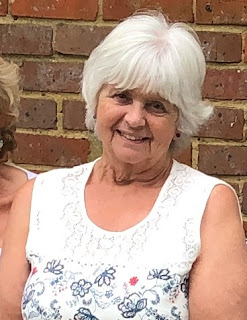The other day I came across a short video by the Anglican bishop and biblical scholar Tom Wright, who was publicising his latest book God and the Pandemic: A Christian Reflection on the Coronavirus and its Aftermath. (I was successfully persuaded to buy it as a result – and am deeply impressed!) In it, he reflects on what the bible has to say about all sorts of crises, and how people respond to them, starting with the Prophets, moving on to the Psalms and the book of Job, and then on, through Jesus, to the early Church. He describes how, in times of crisis and disaster, both in biblical times and today, people often see disasters as being sent by God as punishments, or blame others for causing them. But through Jesus’s responses to people in trouble, we can learn that, having (very importantly) spent time prayerfully going through a stage of lament, there follows a call to action – what can we do about it now? And thus, even as we feel our helplessness in the face of disaster, nevertheless we come to realise that the God we know in Jesus is still there, still with us, still sovereign….and out of all that can come all sorts of new and great things.
Here’s a short extract, focusing on the passage in Acts II when the disciples
in Antioch hear from a prophet that there is going to be a famine. “So what do
the Antioch Jesus-followers say? They do not say either ‘This must be a sign
that the Lord is coming back soon!’ or ‘This must mean that we have sinned and
need to repent’ – or even ‘this will give us a great opportunity to tell the
wider world that everyone has sinned and needs to repent’. Nor do they start a
blame-game, looking around at the civic authorities in Syria, or the wider
region, or even the Roman empire, to see whose ill-treatment of the eco-system,
or whose tampering with food distribution networks, might have contributed to
this dangerous situation. Instead, they ask three simple questions: Who is
going to be most at risk when this happens? What can we do to help? And
who shall we send?"
It struck me that these same thoughts and questions might very well
be applied to our current global climate emergency / environmental crisis, just
as much as to the pandemic - and of course there is much research which
suggests that the two are closely linked. But I can't help thinking that a
little bit of repentance might actually go quite a long way here as well!
In a recent podcast, the lay preacher John Collings reminded us that
when John the Baptist - a central figure of Advent - baptised people in the
river Jordan, they went completely down under the water and came up again, as a
sign that they wanted to change their way of life; to ‘repent.’ He wondered if we have felt as if we too have
been – and still are - under the water
of the pandemic at the moment, and we can’t wait to come up and out of it. But
when we finally emerge from its clutches, do we want to go back to the old way
of life - burning too much fossil fuel,
using too much single-use plastic, dropping litter, destroying rain forests, and
so on – basically, abusing the planet? Or do we want to emerge, like those
people arising out of the Jordan after baptism, ready to embrace a new and
different way of life, where we properly respect and care for the earth that
God created and loves (so much that he sent his Son, the baby whose birth we
are about to celebrate), and where we do the minimum of damage to our beautiful
yet vulnerable planet, to bring about a world where all of life can flourish? I’m
sure we do!
As
Sir David Attenborough has so vividly pointed out, we are at a unique stage in our history.
Never before have we had such an awareness of what we are doing to the planet,
and never before have we had the power to do something about it. And what happens next is up to every one of us – and,
I would add, not only with regard to environment, but of course also as we
tread carefully on our ongoing journey out of the pandemic.
Even
amid all the current challenges and restrictions, great things are happening as
we approach the end of Advent and celebrate, in just a few days’ time, the
birth of Jesus, with its promise of good news for all people. And we are also fast
approaching the start of a new year – as so many people have said, this is a
year they can’t wait to see the back of!
But it’s traditionally also a moment for making resolutions, when we can
choose to leave behind any old and unhealthy habits and ways of life, and make
a fresh start. I can tell you there’s certainly plenty of room for improvement
in my own life! So, we all have a great
opportunity, like the disciples in Antioch, to ask ourselves now, as we consider
both Covid and climate crisis, “Who is going to be most at risk here? What can
we do to make this situation better? Who
shall we send? … Here I am, Lord. Is it I, Lord?” And Eco Church beckons, to help us on our
way!
To
end with a quote from T.S. Eliot,
For last year's words belong to last year's language
And next
year's words await another voice.
And to make
an end is to make a beginning.





No comments:
Post a Comment